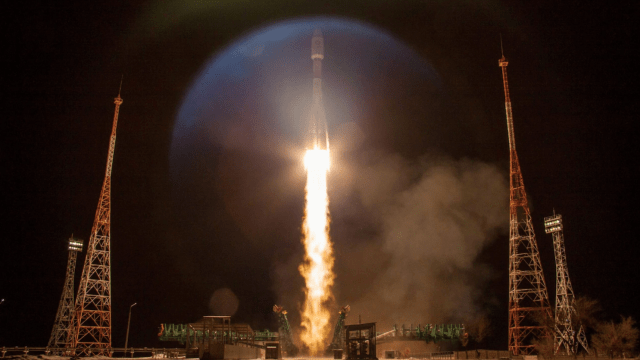Telecommunications firm OneWeb has filed for bankruptcy, leaving the status of its orbital internet constellation, which currently consists of 74 satellites, in doubt. The debt-stricken company said it failed to secure required funding on account of the covid-19 pandemic.
OneWeb announced on Friday that it is filing for bankruptcy protection, the same day the firm laid off around 85 per cent of its 531 employees, reports SpaceNews.
The company is seeking Chapter 11 protection in the U.S. Bankruptcy Court for the Southern District of New York, which it is doing to facilitate a sale of the business. OneWeb had failed to secure new funding from a key investor, Softbank, according to the Financial Times.
“Our hope is that this process will allow us to carve a path forward that leads to the completion of our mission, building on the years of effort and the billions of invested capital,” said OneWeb CEO Adrian Steckel in a press release. “It is with a very heavy heart that we have been forced to reduce our workforce and enter the Chapter 11 process while the Company’s remaining employees are focused on responsibly managing our nascent constellation and working with the Court and investors.”
OneWeb was striving to build an internet-beaming satellite constellation consisting of 648 satellites, which collectively would have provided broadband internet to paying customers around the world. The idea is similar to SpaceX’s Starlink, which is currently under development, but the Elon Musk-led company aims to create a constellation consisting of tens of thousands of satellites. OneWeb had lofty goals coming into the year, saying it would launch 22 missions in 2020 and demo the system by the end of the year. This now seems exceptionally unlikely.
OneWeb blamed its inability to raise the funding needed to complete its constellation on the ongoing pandemic.
“Our current situation is a consequence of the economic impact of the COVID-19 crisis,” said Steckel in the press release.
The UK-based company had already raised $US3 ($5).4 ($6) billion from investors, “making it one of the highest-profile casualties of the coronavirus-induced market meltdown among private technology companies,” according to the Financial Times.
Major investors included Airbus, Qualcom, the Virgin Group, Coca-Cola, Maxar Technologies, Hughes Communications, and Intelsat, reports CNBC, but the company’s key investor was Softbank, a Japanese holding company. OneWeb had already coaxed over $US1.25 ($2) billion in funding from SoftBank, but the startup was hoping to raise an additional $US2 ($3) billion from this key investor. SoftBank got cold feet due to the economic uncertainties introduced by the pandemic, according to the Financial Times.
Softbank, in addition to balking on OneWeb, is also walking away from a $US3 ($5) billion tender offer to WeWork, according to MSNBC.
As SpaceNews reports, OneWeb had accrued more than $US1.7 ($3) billion in debt prior to filing for bankruptcy, with a key creditor being Arianespace (its launch service provider), to which it owes $US238 ($386) million.
As for the fate of the 74-satellite-strong constellation currently in low Earth orbit, that’s a bit unclear.
As Steckel indicated in the press release, the company’s remaining skeleton crew will continue to monitor its satellites. As the Financial Times reports, “only a few dozen people will still be working at OneWeb to manage” the 74 satellites already in orbit, “thereby allowing the company to keep its spectrum licence,” adding that “the constellation is currently too small to offer telecoms services or generate revenues and the potential value of its radio spectrum to any acquirers is unclear.”
[referenced url=” thumb=” title=” excerpt=”]
OneWeb did not immediately respond to a request from Gizmodo asking about the company’s current ability to safely manage the constellation or the fate of the constellation should OneWeb not attract a buyer. That said, OneWeb’s satellites are designed to de-orbit themselves and burn up in the atmosphere five years after being decommissioned. The resources required to facilitate this process, however, aren’t entirely clear.
Hopefully OneWeb will be able to safely manage this decommissioning process, assuming the company doesn’t attract a buyer—an apparent long shot, given where the global economy is headed.
